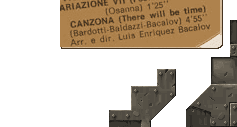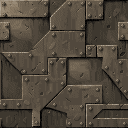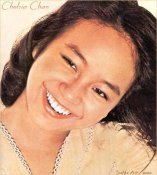Posted on 2012. 4. 22. 02:02
Filed Under [2]의학/간호
조용한 밤에 내가 깜박 잊고 있는 것을 찾아가는 시간을 갖는다.
뉴욕타임즈 메인페이지에 기획기사가 있어서 알려드립니다.
뉴욕타임즈에 The New Old Age (Caring and Coping) 라는 블로그섹션인데
부모님 부양문제, 자녀와 부모님문제, 부양비용 등 주로 노인과 관련된 것들이다. 특히 노인부부에서 배우자가 병 또는 노환으로 사망해서 혼자 사는 경우 등 다양한 케이스를 기반으로 글을 엮고 있다.
타이틀: Married to the Job
(원문: http://newoldage.blogs.nytimes.com/2012/02/29/married-to-the-job)
그중에서 가장 인상적이고 생각할 것이 많은 "Married to the Job"에 대해 소개합니다. 나에게 또는 우리 주변에서 일어 날 수도 있는 일, 꼭 읽어보시길 권합니다.
(참고로 영화 Away From Her, 2006 과 The Notebook, 2004 은 치매에 걸린 배우자에 대한 노부부의 사랑이야기죠.)
여기서는 치매 판정을 받은 전직 대학교수였던 남편을 돌보고 있는 전직 영문학 교수이자 시인인 63세 아내(Rachel Hadas)의 어려움을 회상 형식으로 나타내고 있다.
부모님이 아파서 함께 살면서 돌봐야 하는 경우는 배우자가 아픈 경우와는 전혀 다르다고 말하고 있다. 자식들도 아버지가 아프면 어머니가 돌봐주시겠지라고 생각하는 것이다. 모든 것이 배우자 몫이다라는 것.
Ms. Hadas, an award-winning poet and an English professor, shouldered his care, intent on keeping him at home. 아내는 치매남편을 집에 있게 하는 것이 일이고
For several years, however, “he never smiled. He never talked,” Ms. Hadas told me, sadly. She grew intensely lonely. “You feel you’re not married anymore.”
그러나 결국 몇년 후에 치매남편은 말도 못하고...
When married people begin to suffer the ills and disabilities of aging, their spouses represent the first line of defense; children may not play a hands-on role until later, sometimes much later. Spouses made those promises about sickness and health, and most take them very seriously. 배우자 중에 한명이 아프면 first line of defense 가 바로 상대 배우자라는 것이다. 자식들도 직접 관여하지 않는다.
그래서 Married to the Job 이라는 타이틀을 달았다. 여기서 the job 은 여러가지로 힘든 것들이겠죠.
참고로 레이첼은 http://www.rachelhadas.com 라는 홈페이지를 운영하는데요. 남편에 대한 회고록도 있어요.
(이 글을 쓴 작가 소개)
When the Time Comes: Families with Aging Parents Share Their Struggles and Solutions
워싱턴포스트 기자 출신 작가 Paula Span (http://www.paulaspan.com/) 이 쓴 책의 제목이다. 여기서 the Time은 가족의 어려움 또는 부모님의 죽음 이런 것을 말한다. 가족애가 가장 중요하다는 말. For everyone worrying about an elderly parent 에게 권하는 책이다.
http://stroke.ahajournals.org/content/41/2/331.abstract
추가 멘트)
예를 들어 나이 많은 부모님이 계신데, 어머니는 건강하고 아버지가 아픈 경우, 자식은 어머니가 그래도 많이 챙겨주시겠지라고 생각하겠죠. 그러나 이 생각이 틀렸다는 것입니다.
- How to Say It to Seniors: Closing the Communication Gap with Our Elders
- They're Your Parents, Too!: How Siblings Can Survive Their Parents' Aging Without Driving Each Other Crazy
- Coping With Your Difficult Older Parent : A Guide for Stressed-Out Children
Do You Have
An Aging Parent Who --
> Blames you for everything that goes wrong?
> Cannot tolerate being alone, wants you all the time?
> Is obsessed with health problems, real, or imagined?
> Make unreasonable and/or irrational demands of you?
> Is hostile, negative and critical?
Coping with these traits in parents is an endless high-stress battle for their children. Though there's no medical defination for "difficult" parents, you know when you have one. While it's rare for adults to change their ways late in life, you can stop the vicious merry-go-round of anger, blame, guilt and frustration.
For the first time, here's a common-sense guide from professionals, with more than two decades in the field, on how to smooth communications with a challenging parent. Filled with practical tips for handling contentious behaviors and sample dialogues for some of the most troubling situations, this book addresses many hard issues, including:
> How to tell your parent he or she cannot live with you.
> How to avoid the cycle of nagging and recriminations
> How to prevent your parent's negativity from overwhelming you.
> How to deal with an impaired parent who refuses to stop driving.
> How to asses the risk factors in deciding whether a parent is still able to live alone.
Home care for elderly branded 'shocking and disgraceful
- http://www.bbc.co.uk/news/health-17389588















